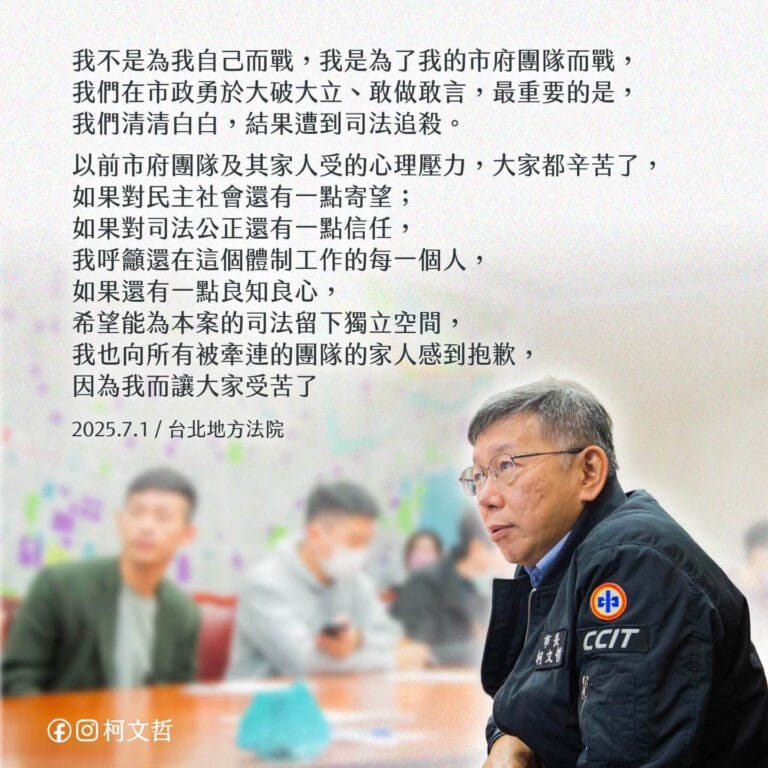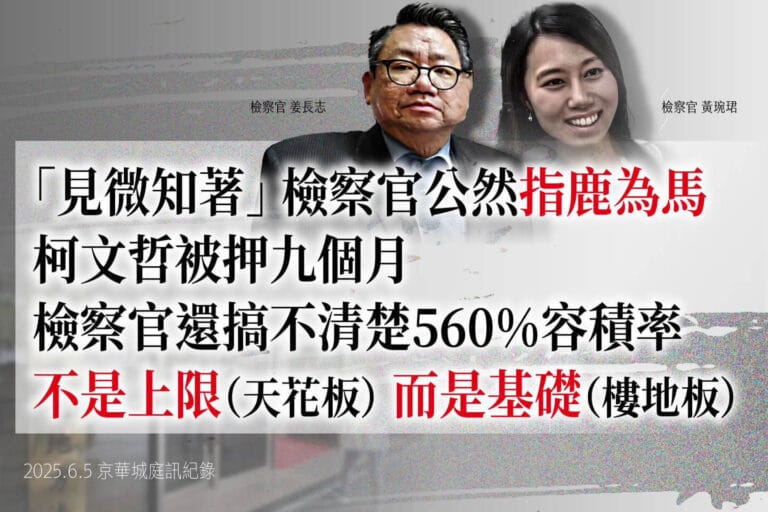
Summary of the ROO HSING Co., Ltd. Scandal:
ROO HSING Co., Ltd. Textile (如興紡織) received nearly NT$1.5 billion in investment from the National Development Fund (NDF, 國發基金) in 2017 to acquire China’s J.D. United Manufacturing Corporation Ltd. (玖地集團). However, this acquisition was fraught with suspicions from the beginning, with Legislator Huang Kuo-chang (黃國昌) raising concerns about financial fraud and asset stripping as early as 2018.
Stripping Assets from Taiwan
ROO HSING Co., Ltd. is accused of illegally transferring Taiwanese investors' funds to China to cover the financial deficits of J.D. United Manufacturing Corporation Ltd. Profitable subsidiaries were excluded from the acquisition, yet ROO HSING Co., Ltd. continued to cover their operating costs.
Stock Price Collapse and Investor Losses
Backed by the NDF’s investment, many small investors followed suit. However, ROO HSING Co., Ltd.’s stock price plummeted, resulting in significant losses for retail investors and substantial financial damage to the NDF’s investment.
Control by Chinese Executives
After the acquisition, numerous Taiwanese executives within ROO HSING Co., Ltd. were replaced by Chinese individuals, including Sun Yang (孫瑒), who has a background in a Chinese state-owned enterprise. Even after being wanted by Taiwanese courts, Sun Yang reportedly continued managing ROO HSING Co., Ltd.'s operations in China.
Dysfunctional Oversight by the National Development Fund
Despite having a director on ROO HSING Co., Ltd.'s board, the NDF failed to detect or prevent the scandal in a timely manner. The investment review process was marked by a high number of absent or proxy committee members, suggesting a careless and lax decision-making environment.
Passive Government Stance
In response to scrutiny, the National Development Council (NDC, 國發會) initially claimed the investment had undergone a rigorous review process, but later refused to release evaluation and investigation reports. After the scandal broke, the NDC was widely criticized for being evasive and lacking a proactive approach to accountability—with some officials even saying they were simply "unlucky."
Slow Judicial Progress
Although prosecutors indicted ROO HSING Co., Ltd. Chairman Chen Shih-hsiu (陳仕修) and others in 2021, Chen managed to flee to the United States, as no travel restrictions had been imposed on him.
Questions Regarding Ties to the Democratic Progressive Party (DPP, 民進黨)
Huang Kuo-chang highlighted Chen Shih-hsiu's close relationship with the DPP, noting that President Tsai Ing-wen’s visit to Nicaragua included a stop at Chen’s factory—raising suspicions that government connections may have played a role in the approval of the NDF’s investment in ROO HSING Co., Ltd.
All in all, the ROO HSING Co., Ltd. fraud case not only caused massive losses for Taiwanese taxpayers but also undermined trust in Taiwan’s capital markets and exposed serious flaws in the government’s investment review process, oversight mechanisms, and response to corporate fraud.

Is Our Hard-Earned Money Gone?
The National Development Fund took NT$1.5 billion of our tax money and invested it in ROO HSING Co., Ltd., and now it has suffered significant losses. Is this money simply gone?
It is highly probable that a large portion of the funds will not be recovered.
The National Development Fund initially invested nearly NT$1.5 billion in ROO HSING Co., Ltd. According to legislative inquiries, this investment has already incurred losses of one-third or more. With ROO HSING Co., Ltd.’s stock price plummeting from the initial NT$18.6 per share to below NT$5, taxpayers’ money has been severely diminished and is likely to be almost entirely lost.
Who’s behind it?
ROO HSING Co., Ltd. was clearly a traditional OEM with financial problems. Why did the National Development Fund invest so much money? Was someone pulling strings behind the scenes?
The investment process was riddled with doubts, making insider dealings a reasonable suspicion.
Huang Kuo-chang questioned why the NDF would invest in ROO HSING Co., Ltd.—a basic denim OEM with poor financials and ongoing losses—hardly a representative of industrial innovation. Despite the Financial Supervisory Commission (FSC, 金管會) initially rejecting ROO HSING Co., Ltd.’s capital increase application multiple times in 2016, it was suddenly approved in January 2017, followed shortly by the NDF’s investment. Huang also pointed to close ties between Chairman Chen Shih-hsiu and the DPP, including President Tsai Ing-wen’s visit to Chen’s factory during an overseas trip, suggesting potential government endorsement of a fraudulent group.
What Has Our Government Been Doing?
The scandal has been exposed for so long. Has the government been seriously investigating and trying to recover our money?
It appears they are stalling and evading responsibility—some even claim they were simply “unlucky”—showing no proactive efforts.
Since the scandal came to light in 2018, the NDC’s response has been highly questionable. While it verbally committed to an investigation, the team it formed primarily consisted of ROO HSING Co., Ltd.’s own internal executives. Although the NDC initially agreed to provide evaluation and investigation reports to legislators, it later reneged on this promise. Facing major losses, the NDC Minister even floated the idea of divestment if ROO HSING Co., Ltd. was “beyond saving,” and claimed, “We are also victims.” Huang Kuo-chang has sharply criticized the DPP government for lacking accountability and failing to explain how the funds will be recovered, particularly condemning the NDC’s attempt to deflect responsibility by claiming it was merely “unlucky.”
Have the Perpetrators Been Caught?
Have the culprits who embezzled our money been brought to justice?
The mastermind has already fled overseas and is living freely!
The Taipei District Prosecutors Office indicted ROO HSING Co., Ltd. Chairman Chen Shih-hsiu and others in 2021. However, because no travel restrictions were imposed, Chen successfully escaped to the United States. While some senior managers at ROO HSING Co., Ltd. have been sentenced, the main perpetrator remains at large, fueling public skepticism about the leniency of Taiwan’s judicial system toward powerful individuals.
Will Our Money Be Safe in the Future?
With such a blatant scandal, will the government be more cautious when investing our money in the future and avoid being deceived again?
Hopefully, the government will truly learn from this lesson and take real steps to protect taxpayers’ money.
Legislators have repeatedly questioned the NDC in the Legislative Yuan, demanding a review of the investment decision-making process and oversight mechanisms. Huang Kuo-chang pointed out that during the review of ROO HSING Co., Ltd.’s investment proposal, many members of the NDF’s evaluation committee were absent or represented by proxies—revealing a disturbingly superficial review process. This raises serious doubts about the professionalism and rigor of the NDF’s investment system. Lawmakers have urged relevant agencies to deliver justice to affected shareholders and demanded that the NDF exercise far greater prudence in future investments, acting as true stewards of public funds.


